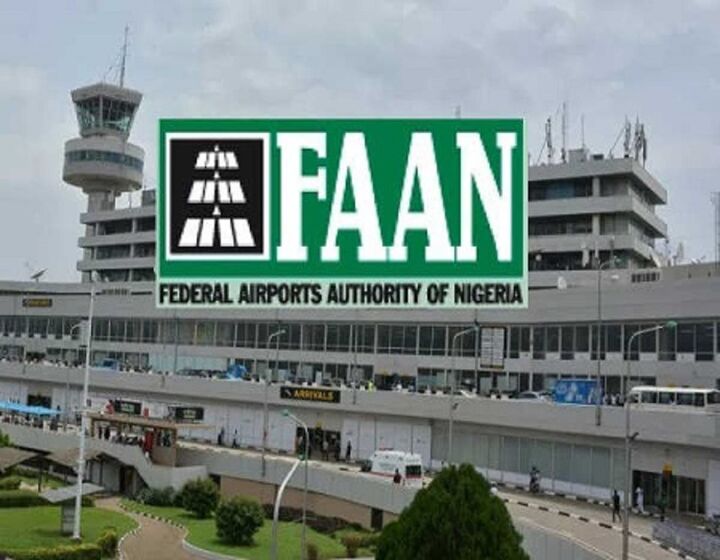The Federal Airports Authority of Nigeria (FAAN) has reiterated its commitment to ongoing aviation sector reforms aimed at transforming the nation’s airports into modern, efficient, and customer-centric facilities that meet global safety and service standards. The reaffirmation comes as part of the agency’s broader strategy to enhance operational efficiency, improve infrastructure, and align with the federal government’s aviation development agenda.
Speaking during a media briefing in Abuja, the Managing Director of FAAN, Mrs. Olubunmi Kuku, said the agency is determined to reposition Nigeria’s airport system as a regional hub for air transport and logistics. She explained that the ongoing reforms are focused on infrastructure renewal, staff capacity building, technology integration, and improved service delivery.

“Our focus is to build world-class airports that reflect Nigeria’s status as Africa’s largest economy. We are working closely with the Ministry of Aviation and Aerospace Development to implement reforms that will enhance operational safety, improve passenger experience, and ensure sustainability in the sector,” Kuku said.
She noted that the aviation industry plays a critical role in the nation’s economic development and must therefore operate efficiently to support trade, tourism, and investment. According to her, FAAN’s reform efforts are guided by principles of transparency, accountability, and innovation.
Kuku emphasised that several airports across the country are currently undergoing upgrades in line with international best practices. These include the installation of modern navigational aids, automated baggage handling systems, renewable energy-powered lighting, and advanced passenger screening technology. She added that the agency is also prioritising safety and security enhancements, including improved perimeter fencing, surveillance systems, and emergency response capabilities.
“The reforms are not only about physical infrastructure but also about people. We are investing in training and reorientation of our staff to ensure that they deliver top-quality service to passengers and stakeholders,” she said.
FAAN’s renewed focus on reform follows the federal government’s directive to make the nation’s aviation sector more competitive and financially sustainable. The Minister of Aviation and Aerospace Development, Festus Keyamo (SAN), has repeatedly stressed that the government’s aviation roadmap is designed to improve service efficiency, attract private investment, and enhance Nigeria’s global reputation as a safe aviation destination.
According to Kuku, FAAN is aligning its policies with the ministry’s vision by adopting technology-driven solutions to reduce delays, enhance revenue collection, and improve passenger facilitation. “We have introduced electronic payment systems, digital ticketing, and automated parking management in several airports. These innovations have helped us reduce leakages and improve service delivery,” she explained.
She also disclosed that the agency has started a comprehensive audit of airport facilities nationwide to assess their operational readiness and prioritise investments in critical infrastructure. The goal, she said, is to ensure that every airport meets the standards set by the International Civil Aviation Organization (ICAO) and the Nigerian Civil Aviation Authority (NCAA).
“We want every passenger, whether local or international, to have a seamless travel experience from check-in to boarding. This requires continuous investment and innovation, which we are committed to sustaining,” Kuku added.
Industry stakeholders have lauded FAAN’s reform efforts, describing them as timely and necessary for the long-term competitiveness of Nigeria’s aviation industry. The President of the Airline Operators of Nigeria (AON), Allan Onyema, commended FAAN’s drive toward modernisation, urging the agency to sustain its momentum.
“FAAN’s reform initiative is a welcome development. Nigeria’s aviation industry has great potential, but it needs consistency and modern infrastructure. If the reforms are fully implemented, we will see improved efficiency and safety across the system,” Onyema said.
Similarly, the Aviation Safety Round Table Initiative (ASRTI) noted that FAAN’s commitment to digital transformation and safety upgrades would help boost Nigeria’s compliance with global standards. The group also called for continued collaboration between FAAN, airlines, and other aviation stakeholders to sustain the reform momentum.
Beyond infrastructure, FAAN is also strengthening its partnership with international organisations, including ICAO, the International Air Transport Association (IATA), and the African Civil Aviation Commission (AFCAC), to enhance regulatory compliance and promote regional cooperation.
Kuku further revealed that FAAN has embarked on several sustainability projects aimed at reducing carbon emissions and improving environmental standards at airports. These include the deployment of solar-powered systems, waste management programmes, and green terminal initiatives to align with global climate goals.
“We understand that aviation must evolve in line with sustainability goals. That’s why we are investing in renewable energy and eco-friendly practices to reduce our environmental footprint,” she said.
FAAN’s managing director assured passengers and stakeholders that the authority would continue to operate an open-door policy, encouraging feedback and partnership to drive improvement. “Reform is a continuous process. We are determined to keep listening to our stakeholders and improving on all fronts,” she said.
As Nigeria continues to expand its air transport network, FAAN’s reform agenda is expected to position the country as a central hub for West African aviation, supporting economic diversification and enhancing regional connectivity.
Kuku concluded by reaffirming the agency’s unwavering commitment: “Our goal is clear — to deliver safe, secure, and efficient airport operations across Nigeria. The reforms we are implementing today will define the future of Nigerian aviation and ensure that our airports meet the best international standards.”
Support InfoStride News' Credible Journalism: Only credible journalism can guarantee a fair, accountable and transparent society, including democracy and government. It involves a lot of efforts and money. We need your support. Click here to Donate
